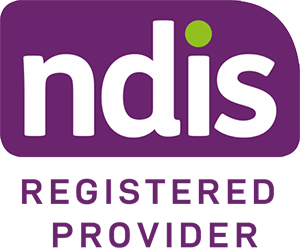Occupational Therapists Brisbane North | Occupational Therapists Near Me in Kedron
At Beam Health Kedron, our dedicated team of Occupational Therapists Brisbane North are committed to delivering high-quality, client-centred services. We recognise the importance of truly listening to children and their families, allowing us to develop tailored occupational therapy plans that focus on helping children achieve meaningful and important goals.
 Our Occupational Therapists Brisbane North offer therapy and intervention strategies that can be implemented across various settings, including our clinic, your home, through telehealth, at school, and within the community. Occupational Therapists near me: we support clients in many surrounding suburbs including Chermside, Lutwyche, Nundah, Wavell Heights, Kalinga, Aspley and much more.
Our Occupational Therapists Brisbane North offer therapy and intervention strategies that can be implemented across various settings, including our clinic, your home, through telehealth, at school, and within the community. Occupational Therapists near me: we support clients in many surrounding suburbs including Chermside, Lutwyche, Nundah, Wavell Heights, Kalinga, Aspley and much more.
Children engage in many daily occupations and activities, such as self-care, play, school, and social interactions. When challenges arise in these areas, they can affect a child’s self-esteem, ability to socialise, develop relationships, and stay focused. Our Occupational Therapists Brisbane North team work closely with you to identify areas of concern, promoting independence, performance, and participation in daily activities.
We provide experiences that foster skill development and support the achievement of meaningful goals. Our Occupational Therapists, based in North Brisbane, are committed to delivering a comprehensive and holistic approach to ensure the best possible outcomes. This typically begins with an initial assessment to understand your child’s strengths, interests, learning styles, and the nature of their challenges, whether they are motor, sensory, learning, social, or emotional and behavioural.
Using this information, we collaborate with you to create individualised occupational therapy plans and family-centred goals. Our services are delivered in a fun, nurturing, and safe environment, where we encourage open communication about strategies to support your child’s development, both during and outside therapy sessions. We also value collaboration with your child’s other health and education professionals to ensure a cohesive approach to achieving their goals.
Our ultimate aim is to enhance your child’s ability to engage in day-to-day activities, achieve their goals, and improve their overall quality of life.
How Can Our Occupational Therapists Brisbane North Help?
Beam’s Occupational Therapy Brisbane North team is committed to delivering high-quality, client-centered care tailored to each child’s unique needs. Our experienced Occupational Therapists use evidence-based practices to help children enhance their ability to play, learn, and develop essential skills. Through thorough assessments and targeted interventions, we work on areas of concern while also leveraging your child’s strengths to promote their overall development.
Beam’s Occupational Therapists near me: we are registered with both the NDIS and Medicare, allowing us to offer flexible support across various settings—whether in our clinic, at home, in school, within the community, or online via telehealth. Eligible participants may access therapy services through NDIS and Medicare funding. Find out more about NDIS eligibility here: https://www.ndis.gov.au/






